War Stories
UNC Charlotte alumni, faculty, staff and students share memories of and stories about family members whose contributions to World War II—on the front lines and behind the scenes—helped shape the course of world history.
Alumni
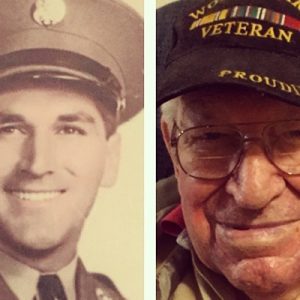
Quick-acting Angelo “Kayo” Mandarano saved the lives of several fellow soldiers.
Angelo “Kayo” Mandarano, remembered by his son, Patrick Mandarano
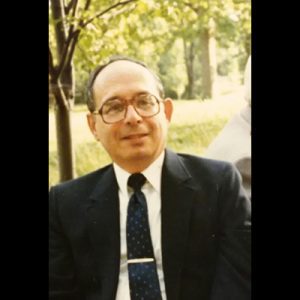
Wounded in battle, Chester Lapa prayed to live; 70 years later, he returned to Europe and was given a rosary.
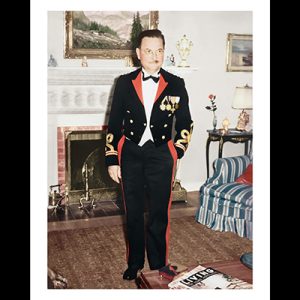
Helping to change the way artillery is deployed, W.D. Williams rewrote the artillery manual in two languages.
Colonel W.D. Williams, remembered by his grandson, Steve Williams
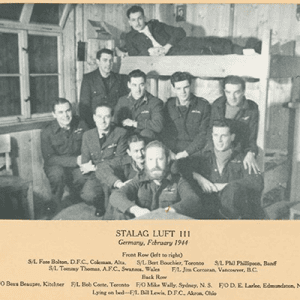
Darrell Larlee, shot down over Germany, survived “The Great Escape” POW camp.
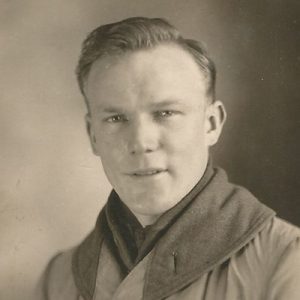
David Vance Sadler fought in the Battle of the Bulge and saved his entire battalion from encroaching German forces.
David Vance Sadler, remembered by his grandson, Jordan McCumbee
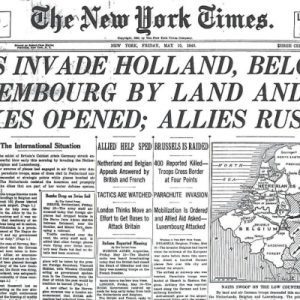
Vivian Kincaid’s parents not only defied the Germans but saved many people from their clutches.
Dorothea and Hendrikus Van der Sande, remembered by their daughter, Vivian Kincaid
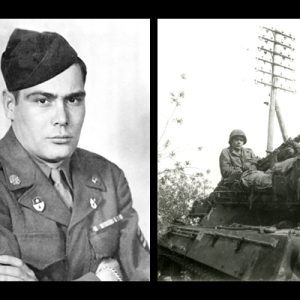
Douglas Filbeck made his mark in WWII driving a tank-destroying M18 “Hellcat” in France.
Douglas Filbeck, remembered by his granddaughter, Amber Filbeck Hoyem
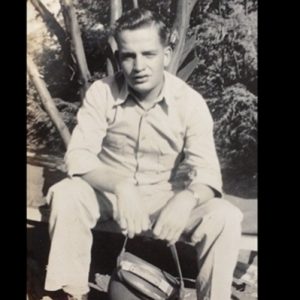
Edward Baker was stationed at Fort Kamehameha on Hawaii the day Pearl Harbor was bombed, an experience that colored his approach to life.
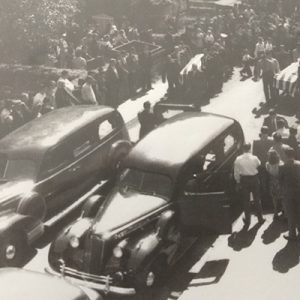
Ethel Dillon’s six brothers served in WWII; two came home in coffins.
Ethel Dillon’s brothers, remembered by her daughter-in-law, Shelia Dillon
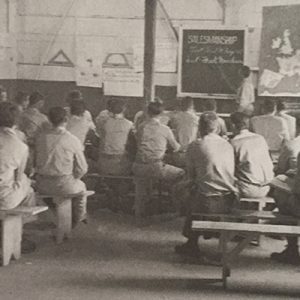
Held as a prisoner of war for 30 months, Fred Meacham taught business classes to fellow prisoners.
Fred Meacham, remembered by his granddaughter, Camille Jones
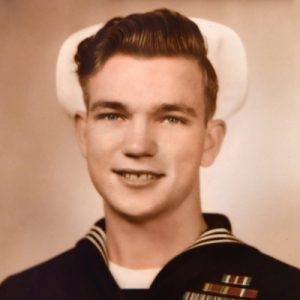
He wrote a lot about how scared he was of the Japanese submarines in the waters that were chasing the ship.
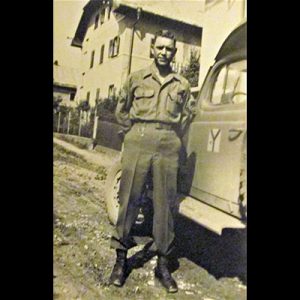
An ambulance driver in North Africa, Italy, Sicily, Germany and Austria, Harold Mitchell was recognized with a Bronze Star and other medals.
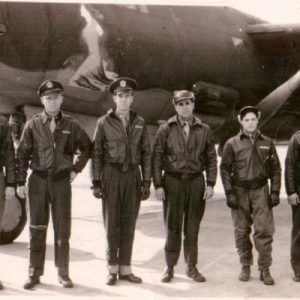
Alumni Brian and Cathey Harrison had several family members in WWII, including three uncles as well as Brian’s parents.
The Harrison family, B. McGinnis and A. Zadilka, remembered by Brian and Cathey Harrison
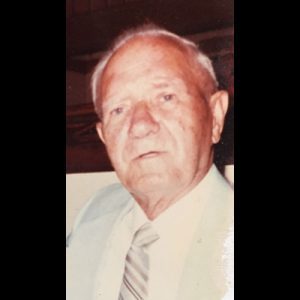
Henry Chambless contributed to the war effort at home by managing refineries that produced shortening, essential in the production of munitions.
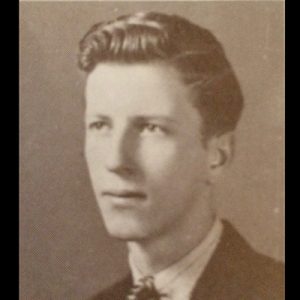
Chemist Homer Hunter was relocated to a “Secret City” near Oak Ridge, Tennessee, to work on the Manhattan Project.
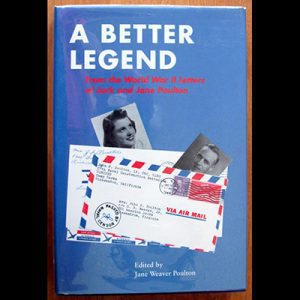
Jack Poulton served in the South Pacific with the Seabees, whose experience was captured decades later in a published book.
Jack Poulton, remembered by his granddaughter, Sarah Poulton
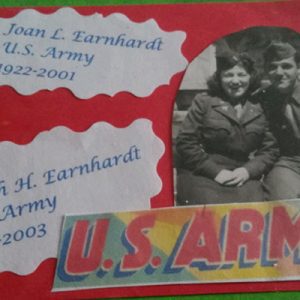
Both parents served in World War II: Joan as an Army nurse in France and Ralph as an Army medic. They worked with Allied troops and German POWs.
Joan and Ralph Earnhardt, remembered by their daughter, Erna Brown
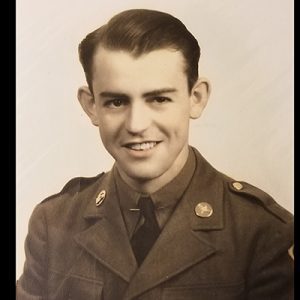
Bataan Death March survivor John Nolan Culp endured much as a prisoner of war in the Philippines.
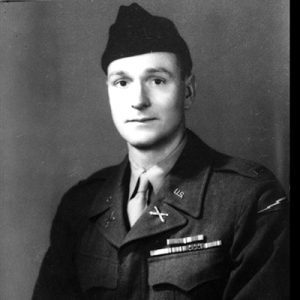
After the Battle of the Bulge, Lentz received the decoration he deserved.
John P. (Paul) Lentz, remembered by his niece, Julie Lentz Fogg
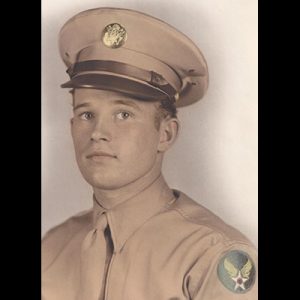
Frank Caldwell and six of his brothers served in WWII at the same time.
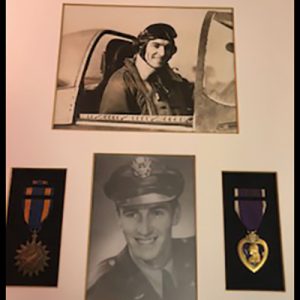
Matthew Crawford, Jr.’s plane was a P51 Mustang fighter. He was shot down and died on March 5, 1945, following a bombing run over Berlin.
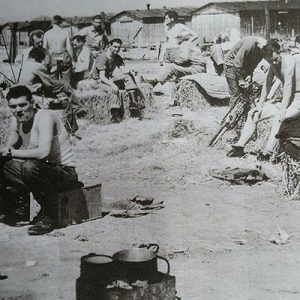
Captured after the Battle of the Bulge, Matthew Reid endured hardships as a POW helping others to escape.
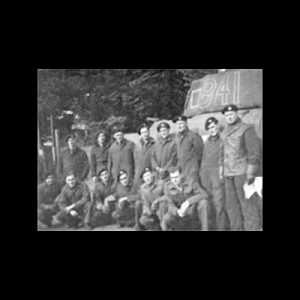
Tank crew member Norman Brown died during the Juno Beach landing.
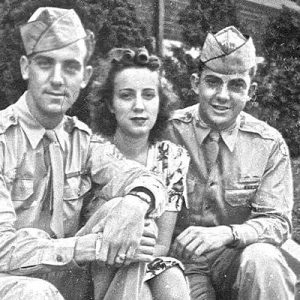
Raymond W. Cromer entered the war as a Second Lieutenant infantryman in the 71st Division of the U.S. Army, and eventually walked across Europe.
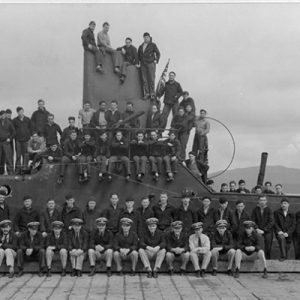
Renaud Lebonville served in the Pacific Theater in the U.S. Navy during World War II.
Renaud Lebonville, remembered by his daughter, Dianne Lebonville
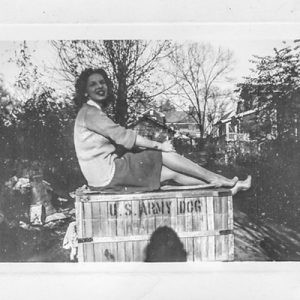
The Harrison family loaned their German Shepherd, Speed, to the Army Air Corps for the duration of the war.
Speed, The War Dog, remembered by his family, Brian Harrison
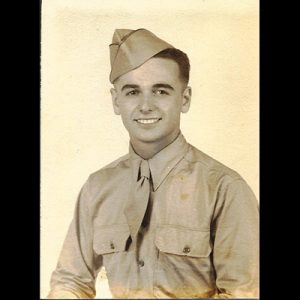
As a member of the Signal Corps, Thomas Ganatsiou received many “top secret” messages. One was a notice that Germany had surrendered.
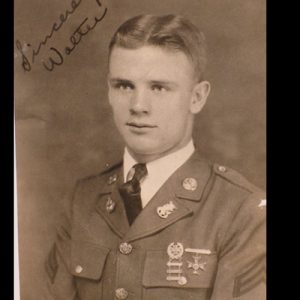
Killed in battle, Walter Knapp was respected by his men and inspired a legacy of military service in his family.
Walter A. Knapp, remembered by his daughter, Mary Jean Houlahan
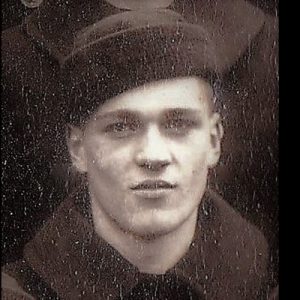
Underaged orphan William O’Brien ferried soldiers ashore during D-Day and later served in the Pacific.
William George O’Brien, Jr., remembered by his daughter, Leilani O’Brien Taylor
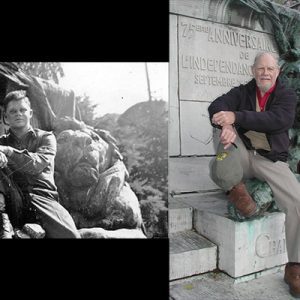
A latecomer to World War II, William Stevenson still helped rout the Germans.
Faculty & Staff
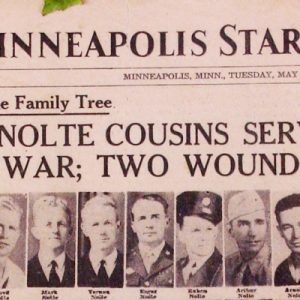
Of 73 cousins in Tyler Wessel’s family, 36 served during WWII.
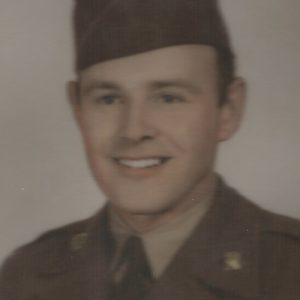
Alan Jones, a ball turret gunner in WWII, was shot down during one of his missions, but he didn’t talk about it.
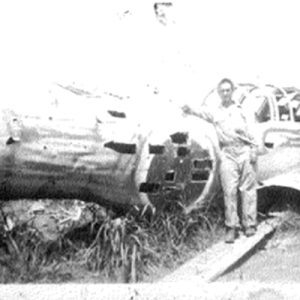
Burt was a member of “MacArthur’s Jungaleers” in the Pacific, battling in New Guinea, Philippines and Japan.
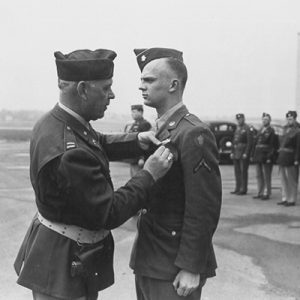
From tragedy to bliss: American soldier and Ukrainian refugee meet in the aftermath of war.
Ben R. Wetenhall, Jr., remembered by his son, Paul Wetenhall
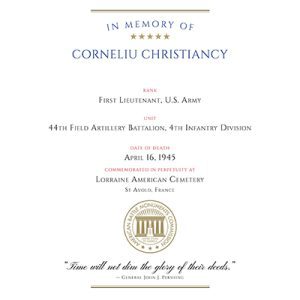
Bronze star recipient Cornelius “Neil” Christiancy was known as a “wonder” among infantrymen.
Cornelius “Neil” Christiancy, remembered by his great niece, Heather Perry
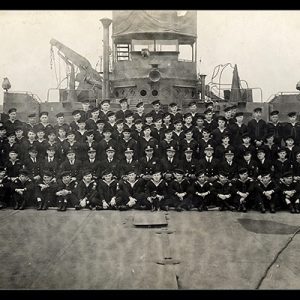
Landing Ship Tank crew member Dean Scarborough never forgot what he witnessed during the D-Day invasion.
Dean Scarborough, remembered by his daughter, Beth Scarborough
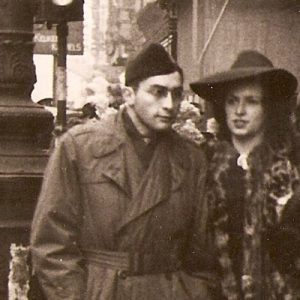
Professor Emerita Susan Cernyak-Spatz was a teenager caught in the Holocaust; her future husband was a Midwestern GI with the second wave of D-Day.
Dr. Susan Cernyak-Spatz and Bernard Fishman, remembered by their daughter, Wendy Fishman
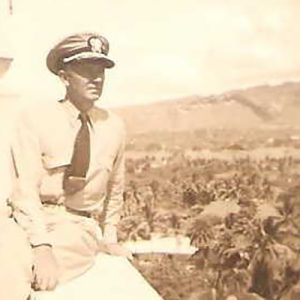
After the invasion of Okinawa, Sabol led the return of several Marines and their service dogs to the U.S.
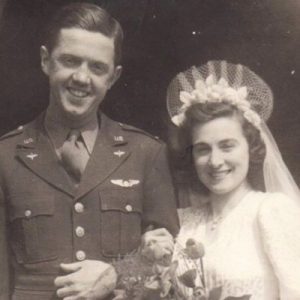
Foster R. Renwick was part of the Army Air Corps squadron who liberated Sainte-Mère-Église.
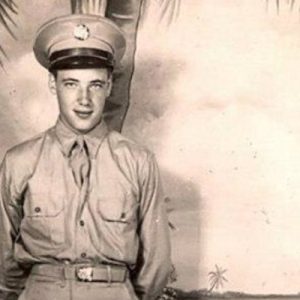
Staff Sergeant Frank Freeman flew 50 missions bombing Nazi oil refineries in Italy and Russia.
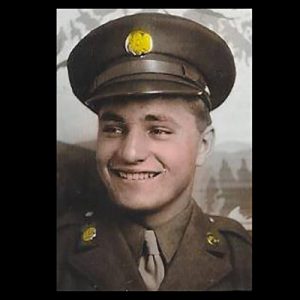
Sometimes pulling the short straw is the luckiest of events.
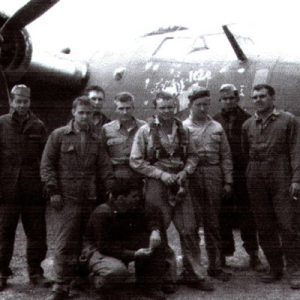
He was a bomber pilot shot down over Hungary in 1944. Captured by the enemy, he spent the rest of the war as a prisoner.
Frank Rutherford, remembered by his great-nephew, Andrew Willis
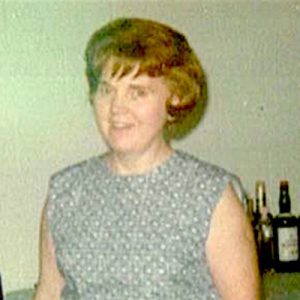
Great Aunt Helen Karvan worked at Ford’s Willow Run Aircraft plant in Ypsilanti, Michigan.
Helen Karvan (née Verbus), remembered by her great-nephew, Daniel Janies
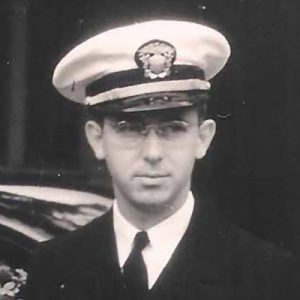
Naval engineer Henry Bultman survived the attack on Pearl Harbor.
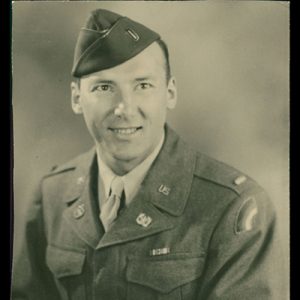
Band leader Herman Giersch helped liberate the concentration camp at Dachau.
Herman C. Giersch, remembered by his grandson, Jason Giersch
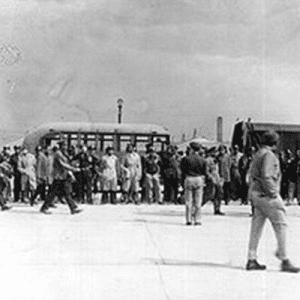
As a Tuskegee Airman, Major Herndon Cummings was involved in an event that foreshadowed the Civil Rights Movement.
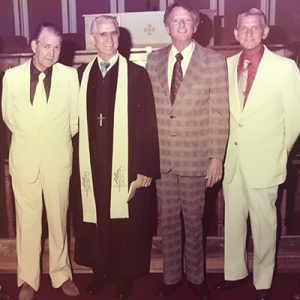
After flying photo reconnaissance missions alongside FDR’s son, Howard Allred followed a calling to become a Methodist minister.
Howard Allred, remembered by his granddaughter, Beth Oyarzun
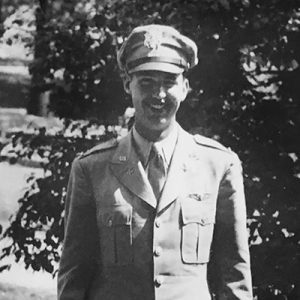
Glider pilot J. Bryan Sims made a heroic landing during D-Day.
J. Bryan Sims, Jr., remembered by his daughter, Jeanette Sims
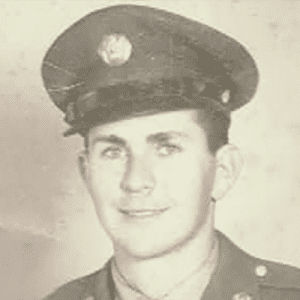
A veteran of action in the Pacific Theater, James Furr corresponded with his family and others proudly and colorfully.
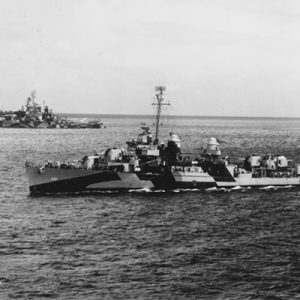
James Edward Reinsel dove into the flooded engine room of the USS Kidd, retrieving bodies that were trapped.
James Edward Reinsel, remembered by his daughter, Tricia Kent
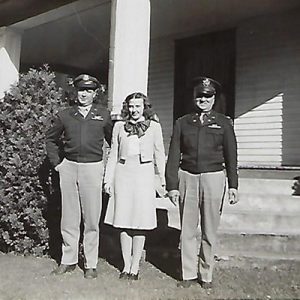
A father and son, one serving in Belgium and the other in Italy, became wounded and reported missing, respectively, the same week.
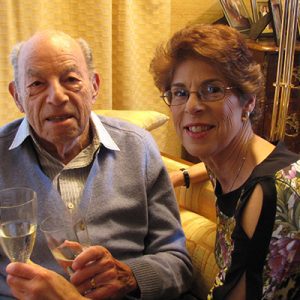
After escaping Nazi Germany, Jean Warner Baer would enlist in the U.S. Army and help free Paris.
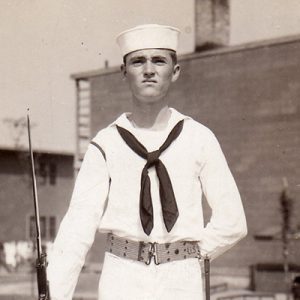
Sailor John Sugg, Sr. helped liberate the Aleutian Islands.
John “Jack” Davis Sugg, Sr., remembered by his son, John Sugg, Jr.
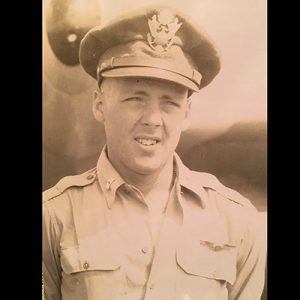
After 60 missions, Jack Schill was killed in action in 1944 over Hungary while attempting to outmaneuver German war planes.
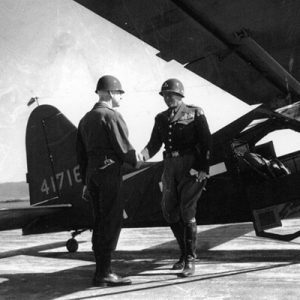
Career Army officer John L. Pierce was a pioneer in tank warfare.
John L. Pierce, remembered by his grandson, David Rousmaniere
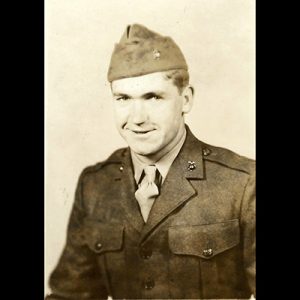
John Witt left the hills of Kentucky to enlist in the Marine Corps, where he served during the Pacific War.
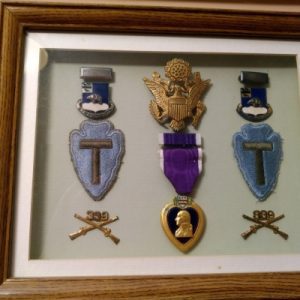
Like many returning soldiers, Vivian Lord’s father didn’t talk much about his war experience.
Kenneth Wilson Baumgardner, remembered by his daughter, Vivian Lord
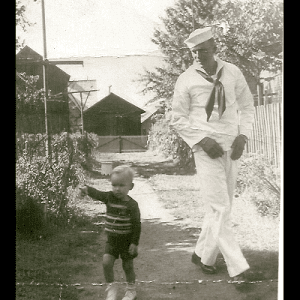
Seaman Michael Scepanski watched the original raising of the flag on Mount Suribachi, Iwo Jima.
Michael James Scepanski, remembered by his son, Jordan Scepanski
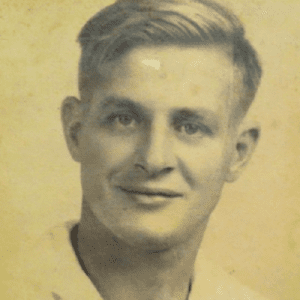
During WWII, Dick Wolfe’s grandmother had three sons and a son-in-law serving in the Navy.
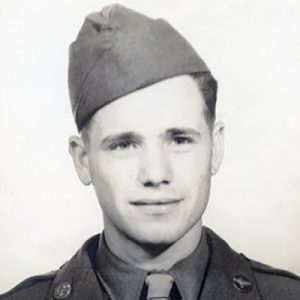
Flying Fortress gunner Ralph Little survived a crash landing and endured time as a POW.
Ralph Henry Little, remembered by his granddaughter, Shari Dunn
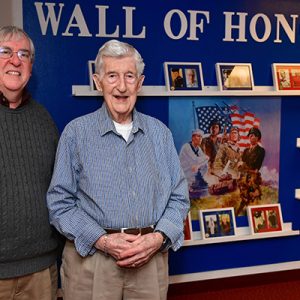
He did not see a lot of action, but he endured some tough conditions on the frozen turf.
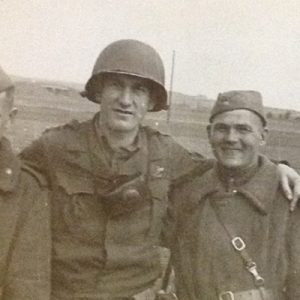
Mill worker turned soldier Bill Presnell fought in Europe and photographically chronicled his infantry company’s movements.
William G. “Bill” Presnell, remembered by his daughter, Barbara Presnell
Students
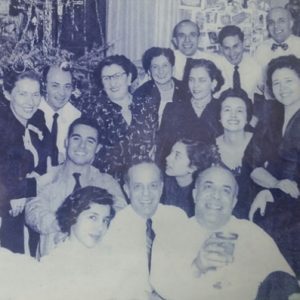
One family’s war heroes included a paratrooper, a naval logistician, and an airstrip builder.
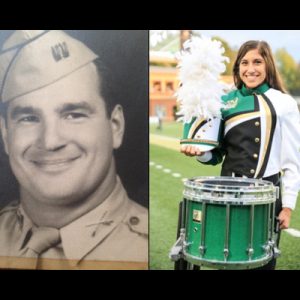
One of the “Iron Men of Metz,” Edward Horvath was a respected infantry officer.
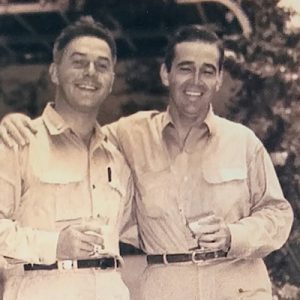
Frank “The Barber” Baldy survived Pearl Harbor and later befriended famed Naval ace, Butch O’Hare.
Francis T. “Frank” Baldy, remembered by his great-nephew, Drew Baldy
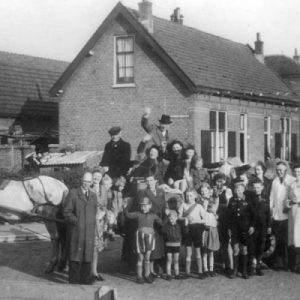
My grandparents risked their lives to conceal Jews during the German occupation of the Netherlands.
Hendrikus and Martha Snapper, remembered by their grandson, Ryan Snapper
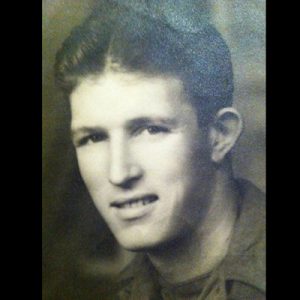
Joseph Owen White was captured by the Japanese and taken to Burma and was held captive on the “Death Railway.”
Joseph Owen White, remembered by his great nephew, Michael Glazebrook
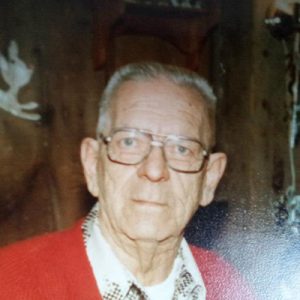
Ovilla Soucy, a naturalized U.S. citizen, saved General George Patton by driving a tank over him so he could climb in its escape hatch.
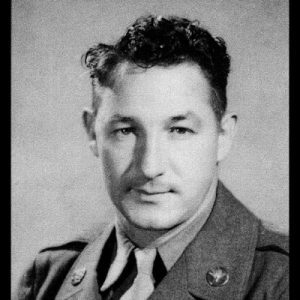
Staff Sergeant William Evans was a decorated turret gunner with the 432nd Bomb Squadron, 17th Bomb Group, Army Air Corps.
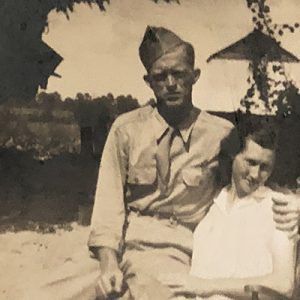
Retrieving soldiers wounded or killed in battle placed William Rasberry in harm’s way.
William James Rasberry, remembered by his great-grandson, Jarod Ricks
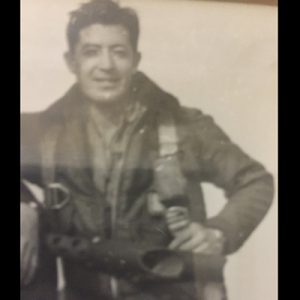
Air Force Sgt. William Patrick Shannon flew 20 missions in “The Flying Fortress.”
William Patrick Shannon, remembered by his granddaughter, Cassidy Shannon
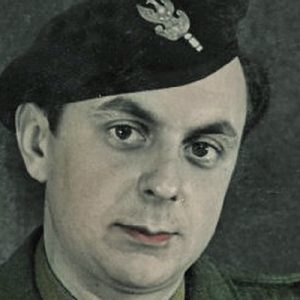
Ziggy Janus fought for the Germans and later for the British.